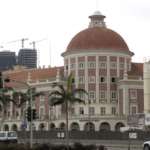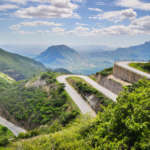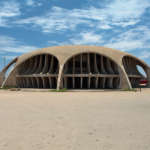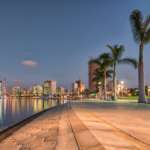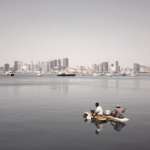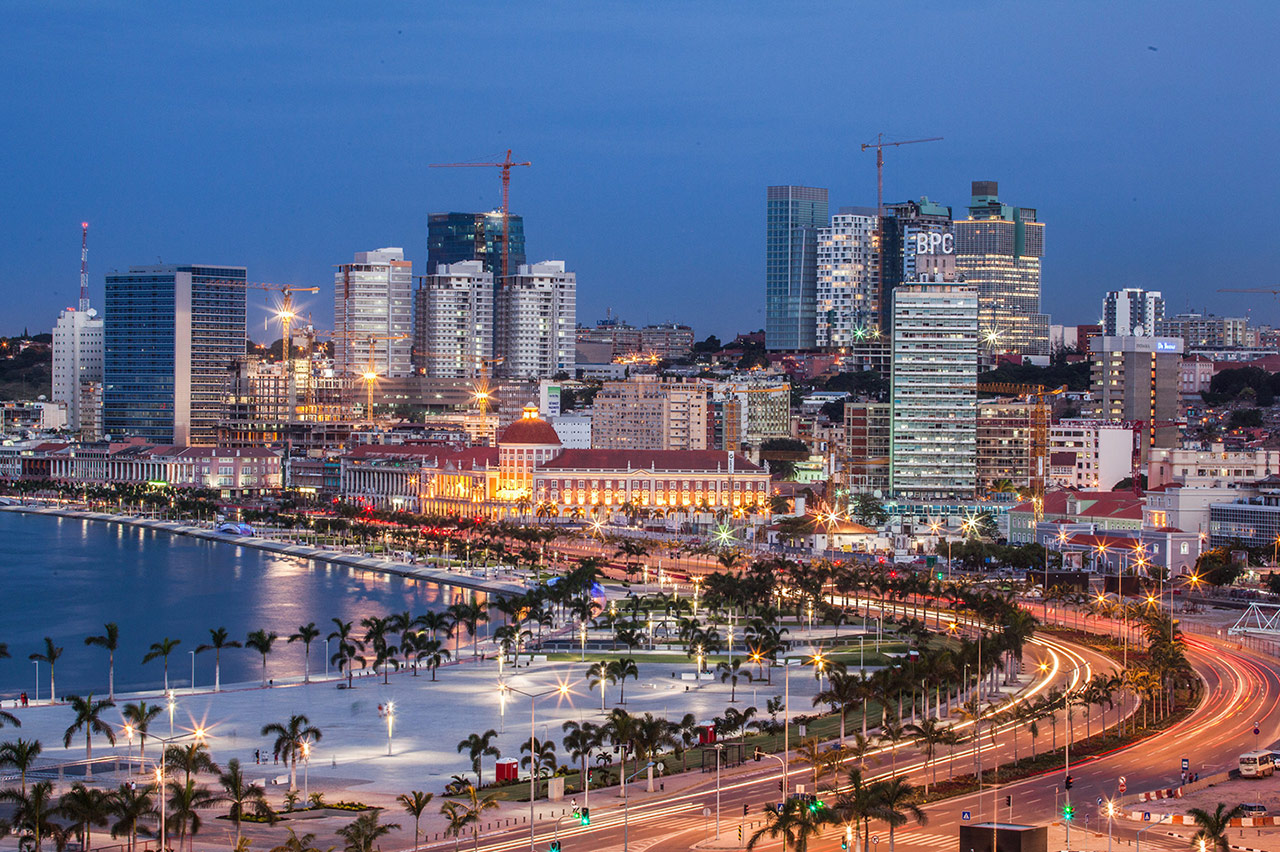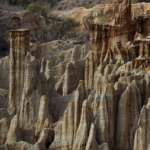A Closer Look at Angola
Angola Flag

Angola Formation Date
Angola gained independence from Portugal on November 11, 1975.
Angola Capital Name
Luanda
Angola Neighbours
Exploring Angola
Origin of Angola
Angola is located in central South Africa, and it is one of the most ancient countries in the world, tracing its roots back to before 1000 A.D.. According to legend, Queen Nzinga Mbande founded the Kingdom of Ndongo in the 16th Century, and it’s from her name that the country of Angola in derived. During the 18th Century, the country of Angola was colonized by Portugal, a period which lasted for centuries.Culture
Angolan culture is unique and vibrant, incorporating influences from its rich history, cosmopolitan cities, and the deep countryside. Traditional Angolan food is a mix of European, African and indigenous elements, with grilled meats and seafood popular dishes. Music is also an integral part of Angolan culture, and the country is known for its upbeat Kizomba and Semba styles of dance music. Candomble and Kimbundo are two religions that have been regularly practiced in Angola for generations, originating in the country’s pre-colonial history.Sport
Soccer is the most popular sport in Angola, with the Angola national team having competed in the African Cup of Nations as well as the Olympics. Basketball and rugby are also popular in the country, and Angolan men have attained success in boxing, mixed martial arts, and judo. In addition, basketball is the second most popular sport in the country, with the Angolan women’s team having competed in the Summer Olympics in 2016.Religion
The majority of the people of Angola are Roman Catholics. However, among the indigenous people of Angola, several forms of traditional animism are still practiced. In addition to various denominations of Christianity, there are also a few people that practice Islam, the main one being the Yoruba people of the Cabinda province.Languages
Portuguese is the official language of Angola, and it is widely spoken throughout the country. In addition, there are over 40 other languages that are recognized by the government for use in schools and other formal contexts. The most widely spoken of these is Kimbundu, a Bantu language that is spoken by over 17% of the population. Other popular languages in Angola include Umbundu (11%), Kikongo (9%), and Chokwe (6%).Education
Education is free and compulsory in Angola for children between the ages of six and fifteen. However, due to a large number of internally displaced people living in the country, education is often not as accessible as it should be. In addition, a lack of resources and infrastructure has resulted in only half of the country’s children attending school.Demographics
With an estimated population of 25 million people, Angola is vastly populated. The median age in Angola is 20.8 years of age, with a total population density of 18.58 people per square kilometer (47.97/sq mi). Angola has a relatively young population, with 37.9% of the population under the age of 14 and only 2.5% of the population over the age of 65.Commerce
Angola has one of the strongest economies in Africa, with a gross domestic product of $112 billion in 2018. The main industry in the country is petroleum, with oil accounting for nearly 95% of total exports. Other important industries include agriculture, fisheries, diamonds, and textiles.Weather
Angola has a subtropical climate, with temperatures ranging from 15 to 40 degrees Celsius. In the summer the temperatures can reach 50 degrees Celsius, while in the winter the temperatures can drop to 10 degrees Celsius. Angola receives heavy amounts of precipitation throughout the year, with an average of 1,000 mm per year.Borders
Angola shares borders with the Democratic Republic of the Congo to the north, with Zambia to the east, and with Namibia to the south. To the west, Angola is bordered by the Atlantic Ocean. In addition, Angola has a number of maritime boundaries with various other countries, including France, Gabon, and the United Kingdom.Angola Image Gallery
Angola Highest Point Name
The highest point in Angola is Morro de Môco, at 8,424 feet (2,577 meters) above sea level.
Angola Highest Point Value
2,620 m
Angola Capital Longitude
8.8147° S
Angola Capital Latitude
13.2302° E
Angola Official Languages
Portuguese, Kikongo, Kimbundu, Umbundu
Angola Ethnic Groups
36% Ovimbundu
25% Ambundu
13% Bakongo
22% other African
2% Mestiço
1% Chinese
1% European
Angola Religions
There are about 1,000 religious communities, mostly Christian, in Angola.
Angola Total Area
1,246,700 SQ KM
Angola Land Area
1,246,700 SQ KM
Angola Water Area
1,246,700 SQ KM
Angola Total Population
30,100,000
Angola Currency Name
Kwanza
Angola Currency Code
AOA
Angola Currency Symbol
KZ
Angola Time Zones
- UTC+01:00
Angola is in the West Africa Time Zone, which has a UTC offset of +1 hour. Daylight saving time is not observed in Angola. Therefore it remains in West Africa Time (WAT) throughout the year.
Angola Calling Code
+244
Angola Internet TLD
www.aveholidays.ao
How to Say "Angola" In Different Languages?
- Spanish
- Angola (es-AR)
- English
- Angola (en-AU)
- Brazilian Portuguese
- Angola (pt-BR)
- Chinese Simplified
- 安哥拉 (zh-Hans-CN)
- French
- Angola (fr-FR)
- German
- Angola (de-DE)
- Greek
- Ανγκόλα (el-GR)
- Hindi
- अंगोला (hi-IN)
- Italian
- Angola (it-IT)
- Japanese
- アンゴラ (ja-JP)
- Malay
- Angola (ms-MY)
- Spanish
- Angola (es-MX)
- Yoruba
- Ángólà (yo-NG)
- Polish
- Angola (pl-PL)
- Portuguese
- Angola (pt-PT)
- Russian
- Ангола (ru-RU)
- Afrikaans
- Angola (af-ZA)
- Spanish
- Angola (es-ES)
- Swedish
- Angola (sv-SE)
- Turkish
- Angola (tr-TR)
Angola Popular Holidays
- New Year's Day
- January 1
- World Day of Peace
- January 1
- Epiphany
- January 6
- National Day for Accessible Technology
- January 16
- World Cancer Day
- February 4
- National Day of Remembrance of the Victims of Military and Political Repression
- February 8
- International Day of Women in Science
- February 11
- Family Day
- February 15
- World Day of Social Justice
- February 20
- National Heroes Day
- February 27
- International Woman's Day
- March 8
- International Women's Day
- March 8
- International Day of Forests
- March 21
- International Day for the Elimination of Racial Discrimination
- March 21
- World Water Day
- March 22
- World Tuberculosis Day
- March 24
- World Day of Prayer and Reflection
- March 25
- Palm Sunday
- March 28
- Good Friday
- April 2
- International Children's Day
- April 2
- Easter Sunday
- April 4
- World Heritage Day
- April 18
- World Day for Safety and Health at Work
- April 28
- National Day for Families
- April 28
- International Labour Day
- May 1
- Workers' Day
- May 1
- Labour Day
- May 1
- National Day for People Living with HIV/AIDS
- May 4
- Id al-Fitr
- May 5
- National Language Day
- May 8
- International Day of Families
- May 15
- World No-Tobacco Day
- May 31
- Children's Day
- June 1
- World Environmental Day
- June 5
- World Environment Day
- June 5
- World Oceans Day
- June 8
- National Refugee Day
- June 20
- World Population Day
- July 11
- International Day of Friendship
- July 30
- International Day of the World's Indigenous People
- August 9
- International Youth Day
- August 12
- International Literacy Day
- September 8
- International Day of Peace and Reconciliation
- September 15
- International Day of Peace
- September 21
- World Tourism Day
- September 27
- World Heart Day
- September 29
- International Day of Older Persons
- October 1
- International Day of Non-Violence
- October 2
- International Day of the Girl Child
- October 11
- World Food Day
- October 16
- World Food Day
- October 16
- International Day for the Eradication of Poverty
- October 17
- World Development Information Day
- October 24
- All Saints Day
- November 1
- International Day for the Elimination of Violence against Women
- November 25
- World AIDS Day
- December 1
- World AIDS Awareness Day
- December 1
- International Day of Persons with Disabilities
- December 3
- International Day of Persons with Disabilities
- December 3
- National Day for People Living with Disabilities
- December 3
- National Day of the Disabled Person
- December 3
- International Civil Aviation Day
- December 7
- Immaculate Conception
- December 8
- International Anti-Corruption Day
- December 9
- Portuguese Language Day
- December 9
- International Anti-Corruption Day
- December 9
- International Human Rights Day
- December 10
- International Day of Migrants
- December 18
- International Human Solidarity Day
- December 20
- Christmas Day
- December 25
- Feast of St. Stephen
- December 26
- New Year's Eve
- December 31


